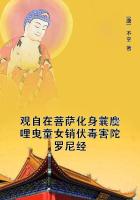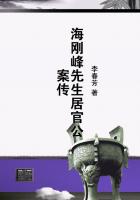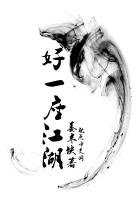THERE is quite a large race or class of people in America, for whom we scarcely seem to have a parallel in England.Of pure white blood, they are unknown or unrecognizable in towns; inhabit the fringe of settlements and the deep, quiet places of the country; rebellious to all labour, and pettily thievish, like the English gipsies; rustically ignorant, but with a touch of wood-lore and the dexterity of the savage.
Whence they came is a moot point.At the time of the war, they poured north in crowds to escape the conscription; lived during summer on fruits, wild animals, and petty theft; and at the approach of winter, when these supplies failed, built great fires in the forest, and there died stoically by starvation.They are widely scattered, however, and easily recognized.Loutish, but not ill-looking, they will sit all day, swinging their legs on a field fence, the mind seemingly as devoid of all reflection as a Suffolk peasant's, careless of politics, for the most part incapable of reading, but with a rebellious vanity and a strong sense of independence.
Hunting is their most congenial business, or, if the occasion offers, a little ******* detection.In tracking a criminal, following a particular horse along a beaten highway, and drawing inductions from a hair or a footprint, one of those somnolent, grinning Hodges will suddenly display activity of body and finesse of mind.By their names ye may know them, the women figuring as Loveina, Larsenia, Serena, Leanna, Orreana; the men answering to Alvin, Alva, or Orion, pronounced Orrion, with the accent on the first.Whether they are indeed a race, or whether this is the form of degeneracy common to all back-woodsmen, they are at least known by a generic byword, as Poor Whites or Low-downers.
I will not say that the Hanson family was Poor White, because the name savours of offence; but I may go as far as this -they were, in many points, not unsimilar to the people usually so-cared.Rufe himself combined two of the qualifications, for he was both a hunter and an ******* detective.It was he who pursued Russel and Dollar, the robbers of the Lake Port stage, and captured them the very morning after the exploit, while they were still sleeping in a hayfield.Russel, a drunken Scotch carpenter, was even an acquaintance of his own, and he expressed much grave commiseration for his fate.In all that he said and did, Rufe was grave.I never saw him hurried.When he spoke, he took out his pipe with ceremonial deliberation, looked east and west, and then, in quiet tones and few words, stated his business or told his story.His gait was to match; it would never have surprised you if, at any step, he had turned round and walked away again, so warily and slowly, and with so much seeming hesitation did he go about.He lay long in bed in the morning - rarely indeed, rose before noon; he loved all games, from poker to clerical croquet; and in the Toll House croquet ground I have seen him toiling at the latter with the devotion of a curate.He took an interest in education, was an active member of the local school-board, and when I was there, he had recently lost the schoolhouse key.His waggon was broken, but it never seemed to occur to him to mend it.
Like all truly idle people, he had an artistic eye.He chose the print stuff for his wife's dresses, and counselled her in the ****** of a patchwork quilt, always, as she thought, wrongly, but to the more educated eye, always with bizarre and admirable taste - the taste of an Indian.With all this, he was a perfect, unoffending gentleman in word and act.
Take his clay pipe from him, and he was fit for any society but that of fools.Quiet as he was, there burned a deep, permanent excitement in his dark blue eyes; and when this grave man smiled, it was like sunshine in a shady place.
Mrs.Hanson (NEE, if you please, Lovelands) was more commonplace than her lord.She was a comely woman, too, plump, fair-coloured, with wonderful white teeth; and in her print dresses (chosen by Rufe) and with a large sun-bonnet shading her valued complexion, made, I assure you, a very agreeable figure.But she was on the surface, what there was of her, out-spoken and loud-spoken.Her noisy laughter had none of the charm of one of Hanson's rare, slow-spreading smiles; there was no reticence, no mystery, no manner about the woman: she was a first-class dairymaid, but her husband was an unknown quantity between the savage and the nobleman.
She was often in and out with us, merry, and healthy, and fair; he came far seldomer - only, indeed, when there was business, or now and again, to pay a visit of ceremony, brushed up for the occasion, with his wife on his arm, and a clean clay pipe in his teeth.These visits, in our forest state, had quite the air of an event, and turned our red canyon into a salon.
Such was the pair who ruled in the old Silverado Hotel, among the windy trees, on the mountain shoulder overlooking the whole length of Napa Valley, as the man aloft looks down on the ship's deck.There they kept house, with sundry horses and fowls, and a family of sons, Daniel Webster, and I think George Washington, among the number.Nor did they want visitors.An old gentleman, of singular stolidity, and called Breedlove - I think he had crossed the plains in the same caravan with Rufe - housed with them for awhile during our stay; and they had besides a permanent lodger, in the form of Mrs.Hanson's brother, Irvine Lovelands.I spell Irvine by guess; for I could get no information on the subject, just as I could never find out, in spite of many inquiries, whether or not Rufe was a contraction for Rufus.















